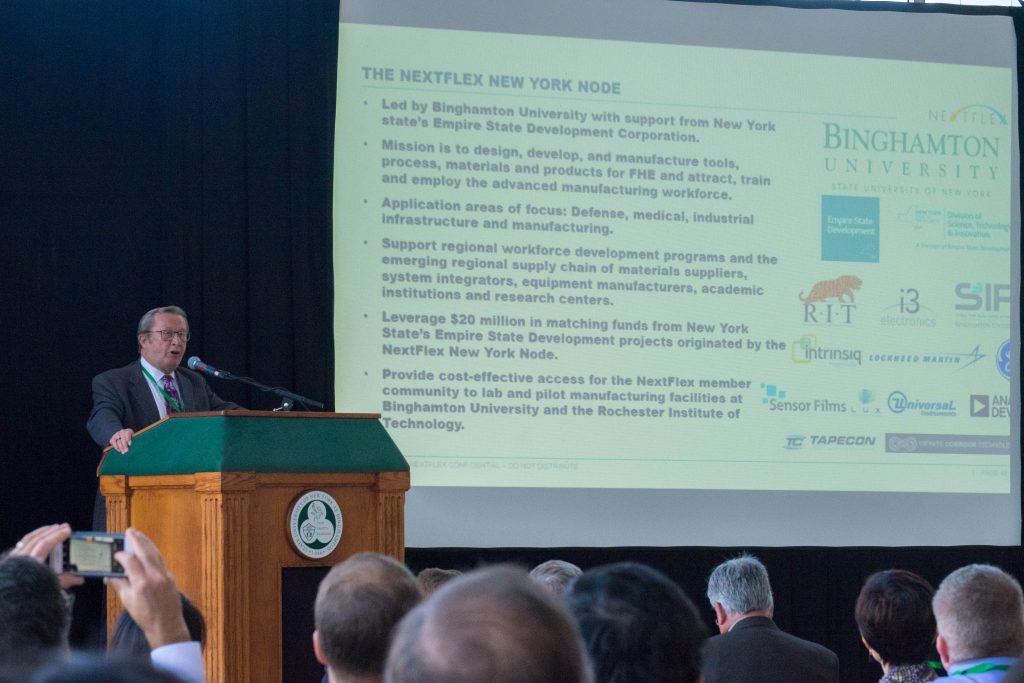
Binghamton University will be the first NextFlex node in New York for the company’s flexible hybrid electronics initiative.
During a daylong symposium at the Innovative Technologies Complex (ITC), Malcolm Thompson, executive director of NextFlex, announced that BU will be a center for increased production, or node, for the initiative.
NextFlex started in 2015 through a collaborative effort between the U.S. Department of Defense and FlexTech Alliance, an organization devoted to the success of electronic displays. According to NextFlex’s website, its goal is to combine efforts from companies, academic institutions, nonprofits and governments to enhance hybrid electronics initiative technologies.
Flexible electronics initiative is a form of technology that can bend and stretch, rather than the usual stiff electronics found in almost all electronic devices such as cell phones. According to Thompson, the new form of technology could improve consumer products and create items like electronic knee braces for the military, which would allow soldiers to carry more weight.
In a statement released after the event, BU President Harvey Stenger noted that the new partnership with NextFlex will help the University connect current research with real-life application.
“Bridging the gap between applied research and large-scale product manufacturing is what this NextFlex initiative is all about,” Stenger said. “We are so proud to play such an important role in this nationwide effort, and today’s announcement once again solidifies Binghamton’s reputation as a leader in flexible electronics research and development.”
According to Benjamin Leever, government chief technology officer for NextFlex, as the New York node, BU will be a productive addition to the NextFlex alliance.
“Establishing a node at Binghamton University will help NextFlex accelerate its efforts to build a national ecosystem in flexible hybrid electronics,” Leever said. “Based on its expertise in both [hybrid electronics initiative] fabrication and electronics reliability combined with its history of industrial collaboration, the Binghamton node will be well-positioned to rapidly deliver innovations.”
The New York node has gained support from multiple sources, including New York State Empire State Development, which has offered $20 million in matching funds for projects started by the node. General Electric has also offered support for the initiative and the University, according to James LeBlanc, technology director of electronics at General Electric Global Research.
“[General Electric] Global Research has a long and proud history of collaboration with the University,” LeBlanc said. “We’re thrilled with NextFlex’s move to establish a regional node at Binghamton University, which has long been a hub for cultivating top engineering talent and driving world-class research in the electronics sector.”


